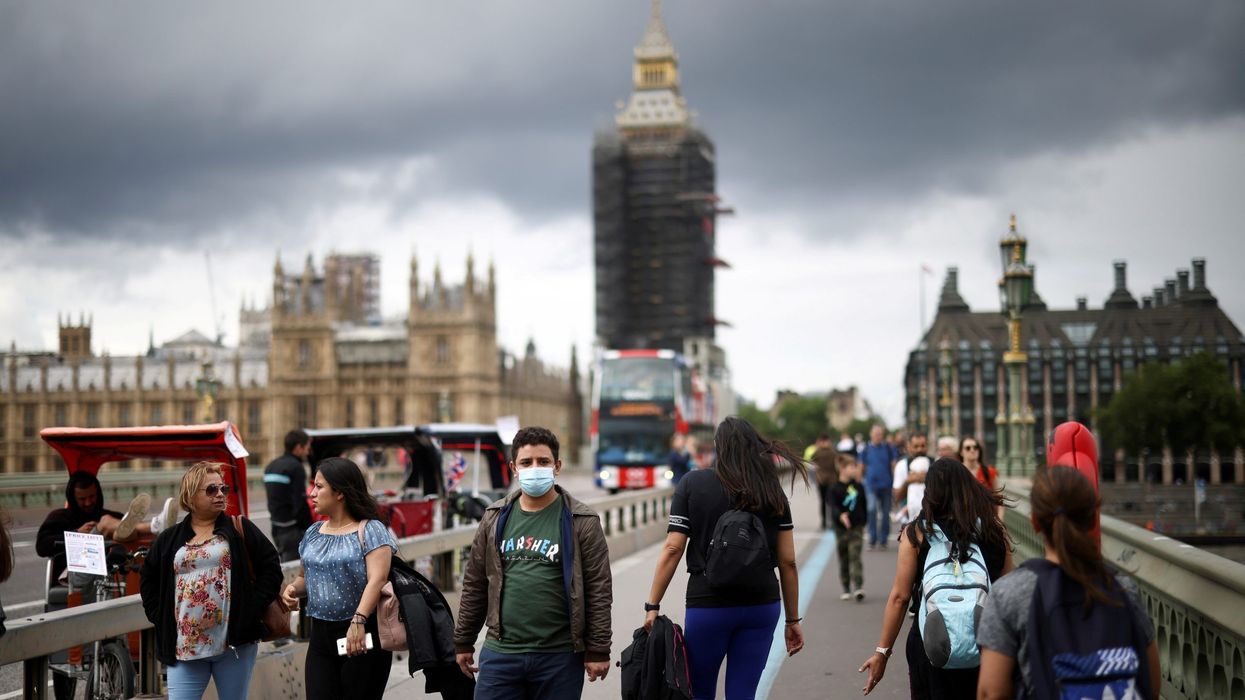BRITAIN reported its highest number of new Covid cases in more than six months on Friday (16), days before the government plans to relax curbs on pubs, restaurants and nightclubs in England and ease requirements to wear masks.
Government data showed there were 51,870 new cases of coronavirus, up from 48,553 on Thursday (15) and the highest daily total since January 15.
The number of new deaths reported as having occurred within 28 days of a positive Covid test was 49, down from 63 on Thursday (15), taking the total on this measure to 128,642.
However, with over two thirds of the adult population fully vaccinated, prime minister Boris Johnson has said the time is right to lift most remaining restrictions, due to a weaker link between case numbers and subsequent hospitalisation or death.
Friday's data showed 67.5 per cent of British adults had received two vaccine doses, while 87.6 per cent had received at least one dose. Most of those who are unvaccinated are younger people who only gained access to vaccines recently.
From Monday (19) nightclubs in England can reopen and pubs, bars and restaurants will be able to pack in more customers.
A legal requirement to wear masks on English public transport and in shops will also go, although many transport operators and stores have said they will require or strongly advise customers and passengers to continue doing so.
The government's chief medical advisor, Chris Whitty, warned earlier on Friday (16) that England could quickly slip back into crisis.
"I don't think we should underestimate the fact that we could get into trouble again surprisingly fast," he had said.
Quarantine on return from France
Meanwhile, English residents who visit France after July 19 easing of restrictions will still be required to quarantine on returning home even if they are fully vaccinated, the UK government said on Friday (16).
The end of the compulsory quarantine for vaccinated English residents returning from countries on London's "amber" list "will not apply to France following the persistent presence of cases in France of the Beta variant" of Covid-19 first detected in South Africa, the Department of Health said in a statement.
Those arriving from countries on the amber list, which includes other popular European holiday destinations like Italy, Portugal and Spain, currently need to quarantine at home for up to 10 days and submit to two tests.
From Monday (19), they will only need to show proof of vaccination in the UK to their airline, ferry or train operator and take a test on the second day after arrival.
But "anyone who has been in France in the last ten days will need to quarantine on arrival to England in their own accommodation and will need a Day 2 and Day 8 test, regardless of their vaccination status," the health ministry said.
Winter flu shot programme
Also, Britain said on Saturday (17) that it would expand its winter flu vaccination programme to millions more people, making it the most extensive ever, as it seeks to avoid pressure on hospitals with the Covid-19 pandemic still circulating.
The government said it would offer shots to 35 million people including older schoolchildren and all those aged over 50 as part of a programme starting in September that would be delivered alongside the possible delivery of Covid vaccine booster doses.
"Flu can be a serious illness and we want to build a wall of protection by immunising a record number of people," health minister Sajid Javid said.
"With the nation getting closer to normal life, we must learn to live with COVID-19 alongside other viruses and we’re offering the free flu jab to millions more people to help keep them safe this winter."
Last year, 81% of people aged 65 and over in England received a flu shot. Admissions to hospital for treatment for flu during the winter typically puts the state-run National Health Service under huge pressure, and health officials fear a combination of serious flu cases along with people still needing treatment for the coronavirus could leave hospitals struggling to cope.
(Reuters)




